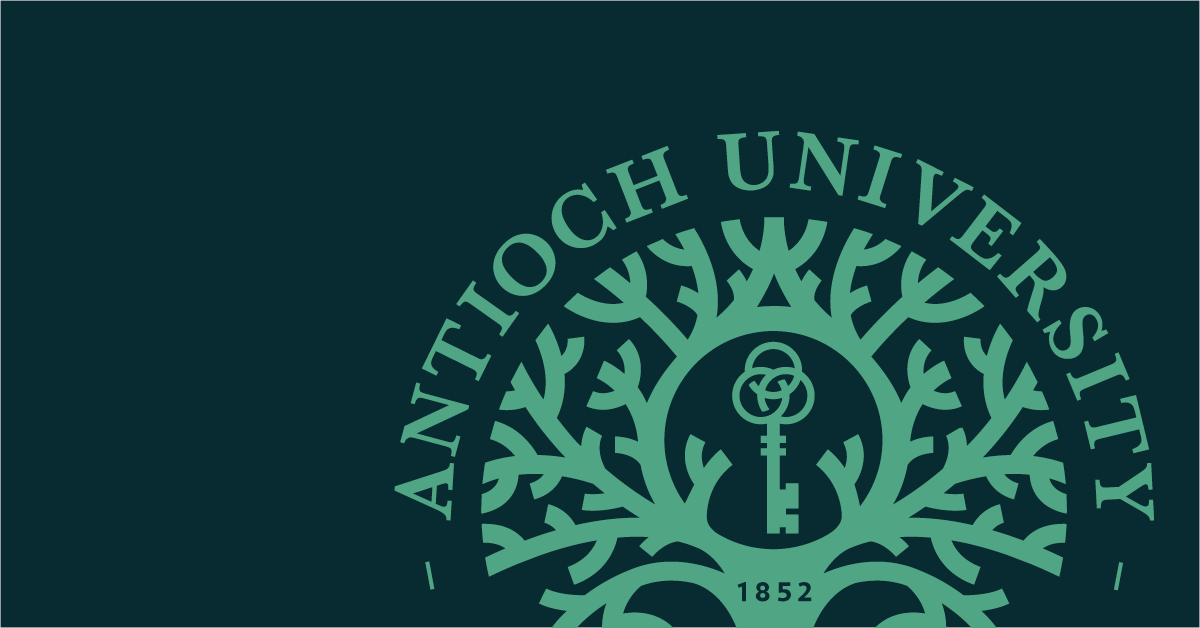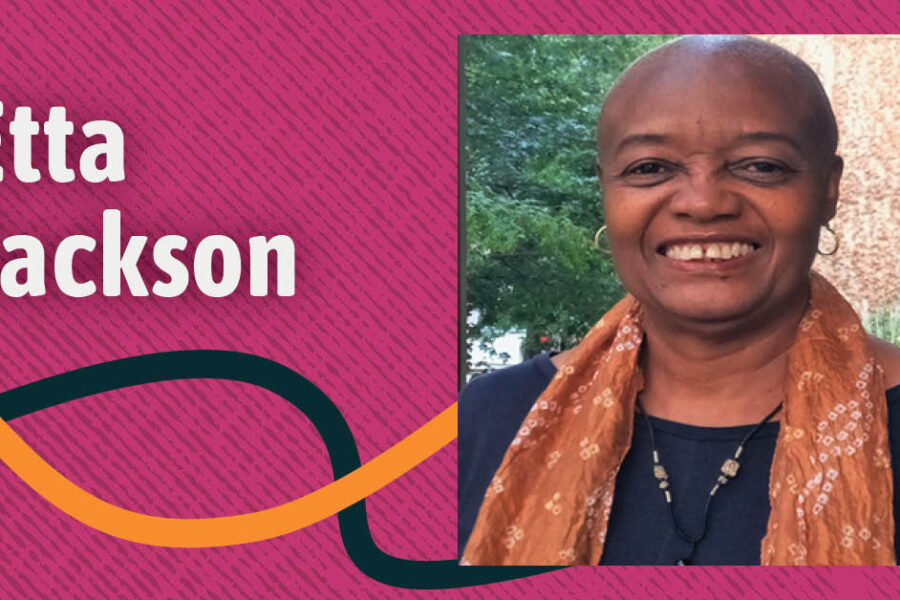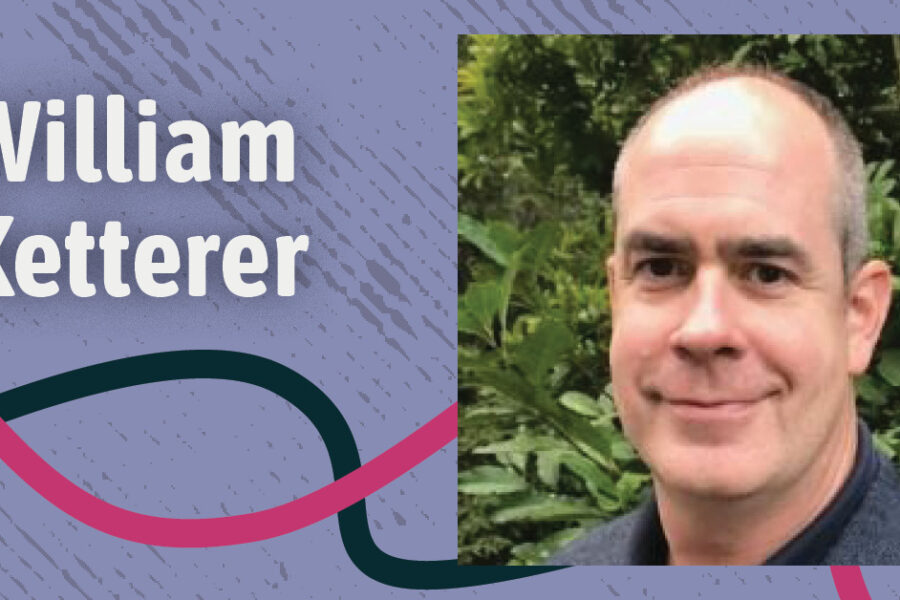In the early days of the coronavirus pandemic, the faculty at Antioch New England (AUNE) collected and published updates and reflections from seventeen alumni of the PsyD in Clinical Psychology program, recording how they were navigating the challenges of life and work in a changed world. We talked to four alumni of Antioch New England’s for the Alumni Magazine. Here we explore the stories of the other thirteen contributors. Be sure to click on the links to read their full letters!
Ted Austin (PsyD ’11) wrote from Warner, New Hampshire about the “fundamental paradox” of the pandemic: “How we need to be connected through all of this present difficulty, but physical connectedness is, to say the least, problematic.” He turned to song and specifically the spontaneous singing of pandemic-stricken Italians, two of which songs he linked to. Read his whole letter here.
Liza Colby (PsyD ’09) wrote from Windham, New Hampshire about how COVID-19 had so far been “quite an interesting experience” and one that illuminated the hardships faced by disenfranchised groups. She talked about the ways that people and institutions were bending to accommodate the challenges the pandemic presented especially to older adults and people with disabilities, who might not even be able to set up a videoconference for a telepsychology appointment. She also wrote about the unusual experience of interacting with new clients entirely at a distance, so that they wouldn’t know that she has a visible disability and uses a walker. “I am wondering whether I should mention the disability before I see them in person,” she wrote. “I haven’t made up my mind.” Read her whole letter here.
Katie Eastman (PsyD ’97) shared a blog post she had written on LinkedIn titled “Providing Mental Health Support During the Pandemic.” This piece of writing brought in loss and grief as well as a more metaphysical or spiritual side to psychological work under COVID-19. And she reported that “I have used my Antioch PsyD in so many ways, and every day I am grateful for that education!” Read her whole letter here.
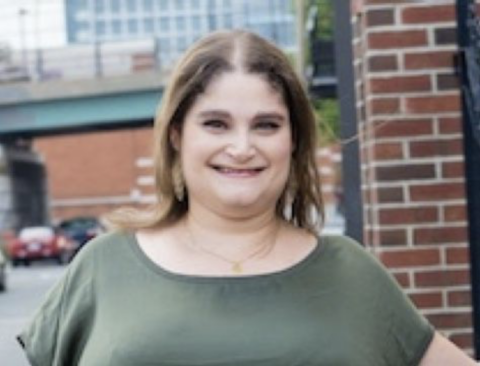 Shoshana Fagen (PsyD ’12) wrote from Brighton, Massachusetts about her experience of engaging in crisis work to help individuals experiencing psychological duress. She discussed the transition to telehealth, the learning curve for both her and especially her younger clients, and strategies she found to keep their attention. This last included an app called Snap Camera, “where you can turn yourself into all sorts of things or add all sorts of things into your camera shot.” This allows clients to “find the right background or even turn themselves into a potato to express themselves,” a strategy of delight that “makes me feel as though these clients are able to communicate in their native language in a way they did not have access to when we met live.” Read her whole letter here.
Shoshana Fagen (PsyD ’12) wrote from Brighton, Massachusetts about her experience of engaging in crisis work to help individuals experiencing psychological duress. She discussed the transition to telehealth, the learning curve for both her and especially her younger clients, and strategies she found to keep their attention. This last included an app called Snap Camera, “where you can turn yourself into all sorts of things or add all sorts of things into your camera shot.” This allows clients to “find the right background or even turn themselves into a potato to express themselves,” a strategy of delight that “makes me feel as though these clients are able to communicate in their native language in a way they did not have access to when we met live.” Read her whole letter here.
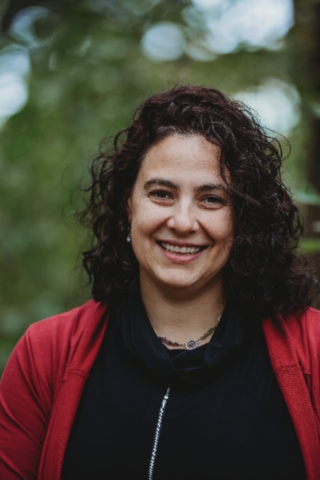 Rachael Goren (PsyD ’12) sent a letter from Hadley, Massachusetts, where she reported that she was “hyper-multi-tele-tasking.” She works at Learning Solutions, which offers assessment and treatment of learning, language, and psychological needs (it is also a training facility that takes PsyD students as part of Antioch’s practicum network). She shared about learning and being creative about balancing personal, professional, and family obligations. “It is kind of an executive functioning nightmare—managing all of my meetings, my 1st-grader’s meetings, and even my preschooler’s ‘Zoom show-and-tell,’” she wrote. And at work, she said that “basically everyone looks like they have ADHD, anxiety, and depression right now, which does make accurate diagnosis difficult.” And yet in all the difficulty of the year and of her position, she found pockets of laughter, as when a client was clearly sitting on the toilet during a session or another time, when “my cat saw a cat outside and screeched, which made me scream, and then my client as well.” Read her whole letter here.
Rachael Goren (PsyD ’12) sent a letter from Hadley, Massachusetts, where she reported that she was “hyper-multi-tele-tasking.” She works at Learning Solutions, which offers assessment and treatment of learning, language, and psychological needs (it is also a training facility that takes PsyD students as part of Antioch’s practicum network). She shared about learning and being creative about balancing personal, professional, and family obligations. “It is kind of an executive functioning nightmare—managing all of my meetings, my 1st-grader’s meetings, and even my preschooler’s ‘Zoom show-and-tell,’” she wrote. And at work, she said that “basically everyone looks like they have ADHD, anxiety, and depression right now, which does make accurate diagnosis difficult.” And yet in all the difficulty of the year and of her position, she found pockets of laughter, as when a client was clearly sitting on the toilet during a session or another time, when “my cat saw a cat outside and screeched, which made me scream, and then my client as well.” Read her whole letter here.
Jennifer Hylton (PsyD ’01) wrote from Worcester, Massachusetts, where she owns and operates three mental clinics and manages more than seventy employees. She wrote about the challenges of telehealth both for practitioners and for their patients. She said that the Voices from the Pandemic series “gives a sense of belonging to a place that created such a life-changing career for me.” Read her whole letter here.
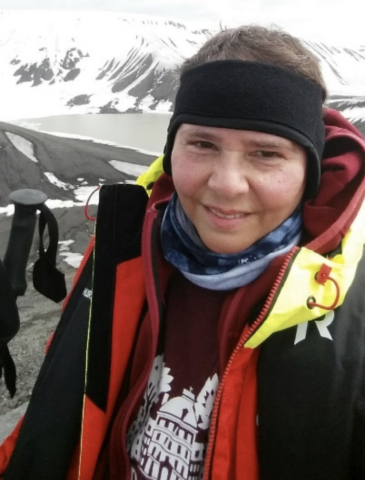 Shoshana Kerewsky (PsyD ’98) sent a letter from Eugene, Oregon, where she was expanding her clinical practice as universities had cut back on teaching appointments. She wrote that she was “happy to be in such a versatile profession, and to have attended a doctoral program that trained me so well.” She also sent beautiful photographs and spoke briefly of a trip to Antarctica that provided an opportunity for peaceful contemplation. Read her whole letter here.
Shoshana Kerewsky (PsyD ’98) sent a letter from Eugene, Oregon, where she was expanding her clinical practice as universities had cut back on teaching appointments. She wrote that she was “happy to be in such a versatile profession, and to have attended a doctoral program that trained me so well.” She also sent beautiful photographs and spoke briefly of a trip to Antarctica that provided an opportunity for peaceful contemplation. Read her whole letter here.
Allyssa Lanza (PsyD ’14) reported about her work as a psychologist in private practice in the Washington, DC area. She said that when the pandemic hit, “Referrals dropped for about a week, and then started to roll in as people noted worsening anxiety (lots of health anxiety and OCD symptoms reported).” She had signed up with Maryland & Virginia’s Medical Reserve Corps as a volunteer but had not yet been deployed. Read her whole letter here.
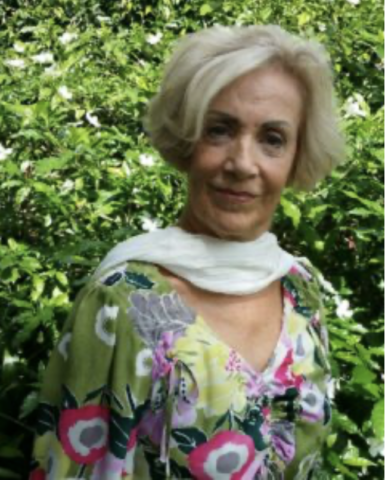 Joan Torgersen Magill (PsyD ’94) sent a letter from Boca Raton, Florida. She was part of Antioch’s first class of PsyD students and has been doing clinical work for four decades. She reflected that “We humans have certainly known that if we don’t adapt we perish.” But now we were being pushed to embrace this philosophy on a wider scale. “It is an understatement to say that the COVID-19 virus and resulting world pandemic is an event for which no one was prepared. Yet adapt we must.” She wrote that within the field of psychology there was still so much to learn and wrestle with in terms of telehealth and the pandemic’s effects on everybody. Read her whole letter here.
Joan Torgersen Magill (PsyD ’94) sent a letter from Boca Raton, Florida. She was part of Antioch’s first class of PsyD students and has been doing clinical work for four decades. She reflected that “We humans have certainly known that if we don’t adapt we perish.” But now we were being pushed to embrace this philosophy on a wider scale. “It is an understatement to say that the COVID-19 virus and resulting world pandemic is an event for which no one was prepared. Yet adapt we must.” She wrote that within the field of psychology there was still so much to learn and wrestle with in terms of telehealth and the pandemic’s effects on everybody. Read her whole letter here.
Laura Pinti (Hilton) (PsyD ’17) wrote from Connecticut about changes—some related to the pandemic, some not—in her work life. She writes, “I went from a part-time private practice to full time immediately, and then transferred my entire practice to telehealth a week later!” She says she is grateful to have a job that she loves and that sustains her. And she graciously says, “You should know that I really do take Antioch everywhere I go.” Read her whole letter here.
David Porrino (PsyD ’17) wrote from Connecticut, where he works as a neuropsychologist. He reported that his practice is almost exclusively based around assessment, which presents special difficulties for a transition to telehealth. He discussed this in his letter and concluded that “I think that the pros of remote testing outweigh the drawbacks, provided the patient and family are informed of and agree to them.” Read his whole letter here.
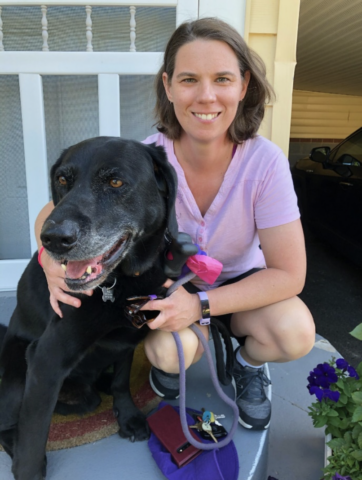 Samantha Rukert (PsyD ’06) wrote from Maryland, where she teaches at Loyola University. She wrote about the cancellation of her March 16th confirmation hearing to the Maryland Board of Psychology (she’s still being appointed, but didn’t get the formality of the in-person hearing), the sudden notice that all Loyola classes would be “transitioning” online in a single week, and her feelings of pride that despite these difficulties all 80 of her students finished their assignments and the semester. Read her whole letter here.
Samantha Rukert (PsyD ’06) wrote from Maryland, where she teaches at Loyola University. She wrote about the cancellation of her March 16th confirmation hearing to the Maryland Board of Psychology (she’s still being appointed, but didn’t get the formality of the in-person hearing), the sudden notice that all Loyola classes would be “transitioning” online in a single week, and her feelings of pride that despite these difficulties all 80 of her students finished their assignments and the semester. Read her whole letter here.
Kristi Webb (PsyD ’99) wrote from Chapel Hill, North Carolina where she has a vibrant practice and recently published a book, “What?!? We Had Homework??”: Email Reminders to Clients from DBT Skills Class Leaders. She wrote about her discovery “that telemental health (TMH) is surprisingly rich and deep,” reporting that an online disinhibition effect was contributing to rich work with fewer filters. She was glad to contribute to the Voices from the Pandemic series because “it is good to know that the experience of AUNE graduates can perhaps be helpful to current students.” Read her whole letter here.

